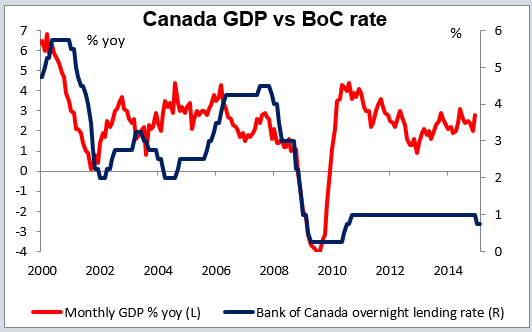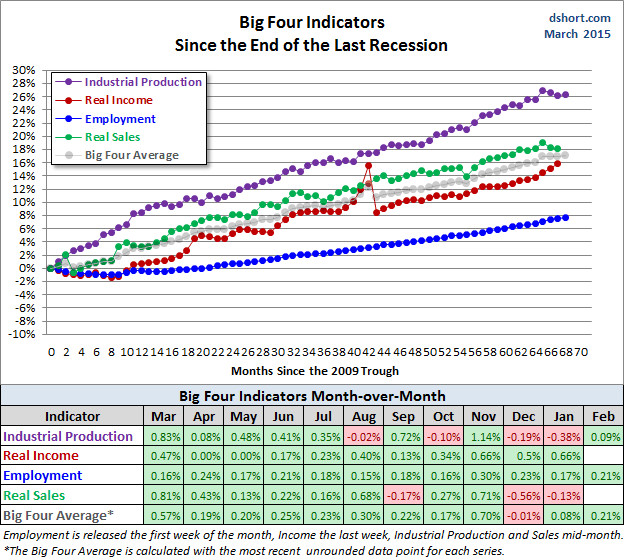This is the most important economic indicator—commentary
Post on: 16 Март, 2015 No Comment

Ryasick | E+ | Getty Images
Also last week, I gave a speech on the state of the U.S. stock market and economy and was asked the question that seems to be most prominent in investors minds (besides, When will Apple hit $125?): What conditions might appear that could derail the stock market rally and cast the U.S. economy toward recession?
On the assumption that the Federal Reserve will continue to keep interest rates at ridiculously low levels for the foreseeable future (which is not guaranteed), the biggest risk to the equity market is a turn for the worse in employment statistics in the United States. It¹s what the Fed is watching very closely as are most market participants/economists.
While the headline jobs number appears to show significant progress toward a pre-Great Recession jobs market, when looking below the surface, the real numbers are less than rosy. While the headline rate now indicates a 5.8 percent unemployment rate, no one really believes the job market is robust. Underemployment continues to be a massive problem and still remains at 11-percent plus. Wages have only increased slightly above inflation over the course of the last 12 months (though as always, these numbers are impacted by the level of skill required for a particular job).
One only needs to examine the data showing that long-term unemployment continues to be hugely problematic with millions of workers still unemployed for time periods greater than 6 months. Some have suggested that an underlying dissatisfaction with the state of the current job market is the reason why there is such a backlash against free-market labor pricing and a groundswell of support for increasing minimum wages.
The reality is that most workers simply don¹t feel that the jobs market has fully recovered.
Because the U.S. economy is 70 percent consumption, the state of the job market matters. There is evidence to suggest that the current jobs environment is prompting hesitation by consumers to loosen purse strings. Already, companies including eBay and Wal-Mart have already reduced expectations for future growth based on likely slower retail sales.

While the United States may be a bright spot in the global economy, it is still rather dim in terms of historic economic recoveries. As global deflation appears more and more likely, it¹s difficult to see how the United States will avoid the contagion effect resulting in lower GDP growth for the foreseeable future. Lower GDP growth means continued stress in the labor market.
I recognize that I may sound like a version of the various Dr. Dooms, but I think a reasonable assessment of current conditions suggest that stabilization is occurring at best, not true recovery. A true recovery in the U.S. economy means a fully healed jobs market and one wonders how that can happen as technology destroys inefficiencies and lower wage countries continue to capture labor market share.
The United States must figure out a way to create real wage growth, not with government regulation but through incentives to prompt businesses to invest in people. Right now, companies are using earnings growth to purchase their stock, increase CEO salaries, boost dividends, and passing efficiencies on to equity shareholders. This may work for a while but eventually, sooner than later, the shell game must stop and reinvestment must occur in the United States that includes jobs growth. While it¹s true that the stock market is a pricing mechanism for corporate earnings, the disconnect between the real economy and business results cannot be perpetually disconnected.
There are a million indicators that are touted in the press as the ones to watch. But, in my view, the one indicator that will matter most for the U.S. economy (as well as equity values) will be the creation of jobs that are not merely placeholder positions. That¹s the real challenge for the U.S. jobs market: How to create new high-wages jobs in a global deflationary environment that is being propped up by artificially low interest rates around the world. Future stock-market returns will be significantly impacted by the future of the employment market; it¹s that simple.
Commentary by Michael A. Yoshikami, the CEO and founder of Destination Wealth Management in Walnut Creek, California. He is also a CNBC contributor.














